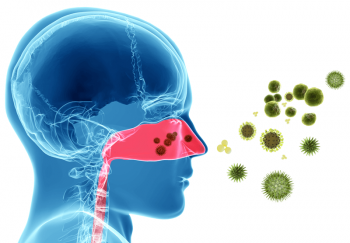The coming of Spring usually marks the onset of seasonal allergies that manifest as hayfever (allergic rhinitis or perenial rhinitis). And if you have a pre-existing sinus problem, you will more likely experience an exacerbation of sinusitis.
Seasonal symptoms are usually found in Spring and early Summer, they are associated with grass, weed, or tree pollen. However, some people can suffer all year round. Other allergens include dust mites, moulds and animals (such as cat hair). Symptoms include persistent sniffing, sneezing, itchy nose, stuffy nose, obstruction or congestion, watery nasal discharge. Heavy mouth breathing and loud snoring can also occur. These symptoms can be accompanied with Allergic conjunctivitis such as itchy, red eyes.
Over the years, I have found Acupuncture to be very effective for hay fever. Recently it has been proven so useful that GPs in America have been officially told to recommend Acupuncture to their clients for Hay fever.
Suffer No More: Acupuncture recommended for allergic rhinitis
The American Academy of Otolaryngology’s new Clinical Practice Guideline recommends acupuncture for patients with allergic rhinitis (AR) who are interested in non-pharmacological therapy.
A Guideline Development Group (20 experts in otolaryngology, allergy, immunology, nursing, CAM and consumer advocacy) developed the recommendations based on supporting evidence (randomised controlled trials with limitations, observational studies with consistent effects and a preponderance of benefit over harm).
Acupuncture was recognised as an effective alternative to medical therapies, which is associated with a reduction of symptoms and improved quality of life for patients. Its advantages were listed as including the avoidance of medication use (with its associated potential side-effects) and better alignment with patient values.
(Clinical practice guideline: allergic rhinitis executive summary. Otolaryngol Head Neck Surg. 2015 Feb;152(2):197-206.)
A newly published meta-analysis of 13 papers (2365 participants) by Chinese authors further supports the use of acupuncture in allergic rhinitis, concluding that it can exert a significant reduction in nasal symptom scores, medication use and serum IgE levels, as well as an increase in quality of life compared with controls.
(Acupuncture for the treatment of allergic rhinitis: a systematic review and meta-analysis. Am J Rhinol Allergy. 2015 Jan-Feb;29(1):57-62. doi: 10.2500/ajra.2015.29.4116.)
Remember – The best time to start treating your hay fever or sinusitis is now, before the season starts. Please don’t wait for your symptoms to flare up because sinuses can become infected very quickly.


